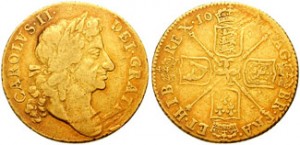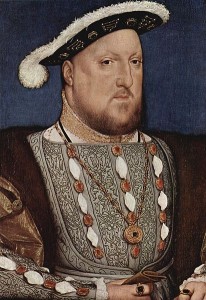As described in my entry on Henry VIII’s influence on the founding of Boston, life in the 1620’s England was becoming very difficult for English Puritans. This was compounded by extremely difficult economic conditions in the areas of England many Puritans called home.
One group of Puritans, led by John Winthrop, a prosperous lord of the manor of Groton, East Anglia, decided it was time to leave. Realizing that they were unlikely to receive a land grant from the King, they had to find a way to obtain a grant via non-traditional means. And ideally, so they could build their ideal society, the land would be free from London’s interference in their affairs. This was a tall order.
It turns out that in 1628, King Charles had given a royal land grant to the New England Company, who represented a group of merchants who wanted to establish mines and trading posts on the Atlantic coast. The corporate rights of the New England Company were spelled out in the “Charter of the Colony of the Massachusetts Bay in New England.” The Charter had a very interesting omission – it did not stipulate out where the governor (the equivalent of the modern day CEO) and his assistants (the board of directors and management team) were to hold their meetings. At this time, it was standard operating practice for the management of a company to be in London, and the worker bees to be in the new world operating by remote control – across three thousand miles of stormy ocean.
The grant was for a substantial parcel of land that ran from the Merrimack River, about 40 miles north of Boston by modern day Newburyport, to the Charles River, which runs through Boston. And, the parcel ran from “from sea to sea.”
In a move very unusual for this time period, Winthrop and his Puritan supporters bought out a controlling interest in the New England Company from the existing shareholders. To assure themselves the ability to govern free from royal interference, they had the company transfer its management meetings from London to America. Furthermore, they decided that only those people who were willing to leave England could become shareholders and required that existing shareholders who did not want to move to America sell their shares. John Winthrop was elected governor and the entire operation, including the physical charter document, moved to America.
This land grant and its innovative corporate charter was the perfect vehicle to use as the foundation for the Puritans’ wide-reaching and ambitious social experiment in the new world. It was to provide the foundation for the wide range of independent thought and action that was fundamental to the development of Boston and the philosophies leading to the American Revolution.
Guinea photo from the Classical Numismatic Group, GNU Free Documentation License, Version 1.2 or later.
















